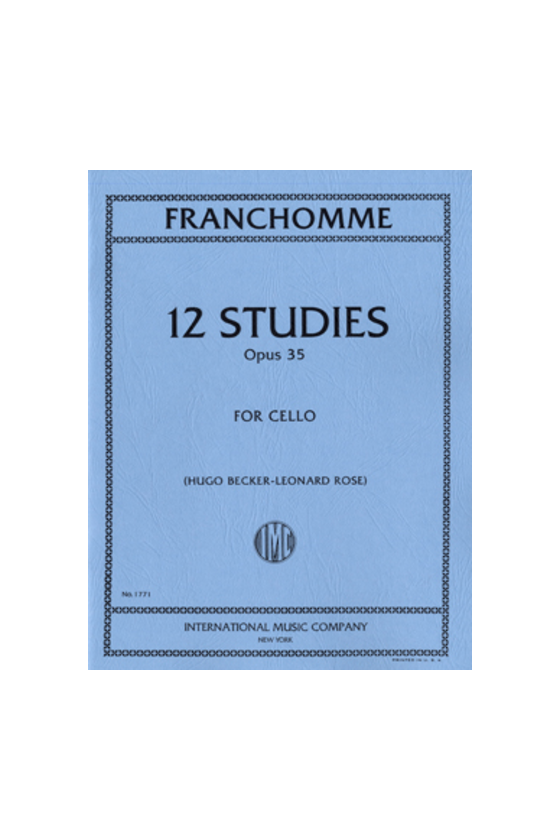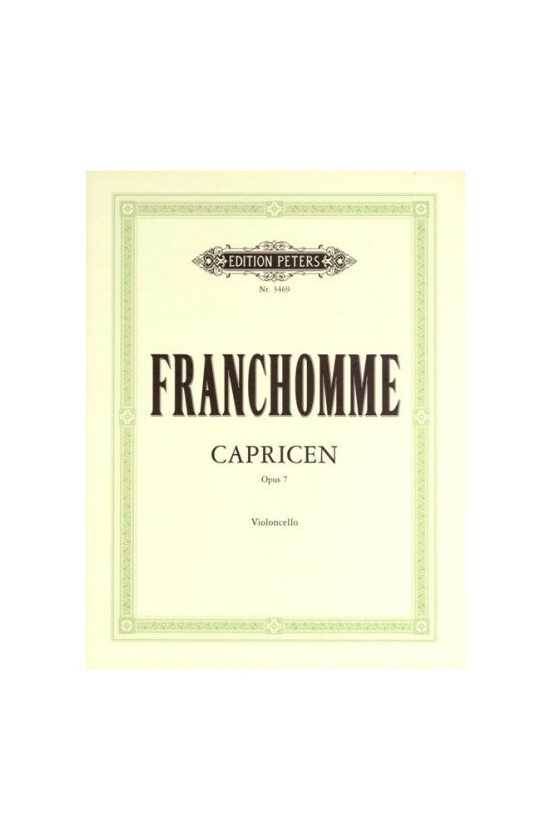Franchomme, Auguste
For years, Auguste Franchomme has been one of classical music's most underrated and overlooked composers. Yet, this French cellist and composer is a true unsung hero of his time, with a wealth of talent and an incredible life story that deserves to be shared. Auguste Franchomme's music is a classical masterpiece showcasing his exceptional talent and innovation as a cellist. He was a prolific composer, with over 80 works to his name, and his music is still played and enjoyed by many today. But despite his significant contributions to the music world, his name remains relatively unknown.
The Life and Career of Auguste Franchomme
Auguste Franchomme was born on April 10, 1808, in Lille, France. His father was a cellist, and young Auguste showed an early aptitude for the instrument, taking up the cello at six. At 15, he moved to Paris to study at the Paris Conservatoire, where he quickly made a name for himself as a prodigious talent. In 1826, at 18, he won the prestigious Premier Prix de Violoncelle at the Conservatoire, and his future as a professional musician was secured.
Franchomme's career as a cellist took him all over Europe, where he performed with some of the most famous musicians of his time. He was known for his virtuosic playing and ability to bring out the full range of expression from the cello. His playing was characterized by a smooth, legato style with a rich, warm tone that set him apart from his contemporaries. In addition to his performing career, Franchomme was also a respected teacher, with many of his students becoming successful musicians in their own right.
Despite his success as a performer and teacher, Franchomme is best known today for his contributions as a composer. He wrote over 80 works for the cello, ranging from solo pieces to chamber music and concertos. His compositions were marked by sophistication and complexity that was unusual for the time, and his use of harmony and counterpoint was highly innovative. Despite this, his music remains relatively unknown, with many of his works remaining unpublished until the 21st century.
Franchomme's Contribution to Cello Music
Franchomme's contribution to cello music cannot be overstated. He was one of the first composers to write specifically for the cello, pushing the boundaries of what was possible on the instrument. His music was marked by a deep understanding of the cello's capabilities and an innate sense of how to showcase its unique qualities.
One of Franchomme's most significant contributions to cello music was his development of a new technique for playing double stops. This technique, which involved playing two notes at once on the cello, allowed for a much richer and more complex sound than had previously been possible. Franchomme's use of double stops in his compositions was highly innovative, and his work in this area helped to establish the cello as a solo instrument in its own right.
Another significant contribution that Franchomme made to cello music was his use of harmonics. Harmonics is a technique that involves lightly touching the cello's string in a specific place to produce a high-pitched, bell-like sound. Franchomme's use of harmonics in his compositions was highly original, and it helped to expand the range of expression possible on the cello.
Franchomme's Compositions and Style
Franchomme's compositions were marked by a complexity and sophistication that was highly unusual for the time. His use of harmony and counterpoint was highly innovative, and his music often displayed a level of technical virtuosity that was unmatched by his contemporaries. Despite this, his music was also characterized by a deep emotional expressiveness that set him apart from other composers of his time.
One of Franchomme's most famous works is his Caprice sur des airs danois et russes, Op. 11, which was written in 1836. This work is a set of variations on traditional Danish and Russian folk songs. It showcases Franchomme's technical virtuosity and ability to bring out the full range of expression from the cello. Another notable work is his Sonata in A major, Op. 32, which was written in 1849. This work is a masterful example of Franchomme's use of harmony and counterpoint, and it remains one of the most significant works in the cello repertoire.
Franchomme's style was characterized by a smooth, legato playing style with a rich, warm tone that set him apart from his contemporaries. His music was marked by deep emotional expressiveness, and his use of harmony and counterpoint was highly innovative. Despite his technical virtuosity, Franchomme's music was always focused on conveying emotion and telling a story.
Franchomme's Legacy in the World of Music
Despite his significant contributions to the music world, Auguste Franchomme's name remains relatively unknown today. This is partly because many of his works were unpublished recently, and his music has yet to receive the recognition it deserves.
However, Franchomme's influence can be seen in the work of many other composers, including his close friend and collaborator, Frédéric Chopin. Chopin and Franchomme collaborated on several pieces for cello and piano, including the Sonata in G minor, Op. 65 is widely regarded as one of the greatest works for cello and piano ever written. Chopin's influence can also be seen in the work of other composers, including Johannes Brahms, who was greatly influenced by Franchomme's use of harmony and counterpoint.
Conclusion
In conclusion, Auguste Franchomme was a true unsung hero of classical music. His talent and innovation as a cellist and composer were unmatched by his contemporaries, and his contributions to the world of music were significant. Despite this, his name remains relatively unknown today, and it is time for his legacy to be celebrated.
Franchomme's music is a classical masterpiece showcasing his exceptional talent and innovation as a cellist. His use of harmony and counterpoint was highly innovative, and his compositions were marked by a deep emotional expressiveness that set him apart from other composers of his time. Franchomme's legacy can be seen in the work of many other composers, and his influence on the world of music cannot be overstated.

Franchomme, Capricen Op.7 For Cello (Peters)
Franchomme, Capricen Op.7 for Cello (Peters)


